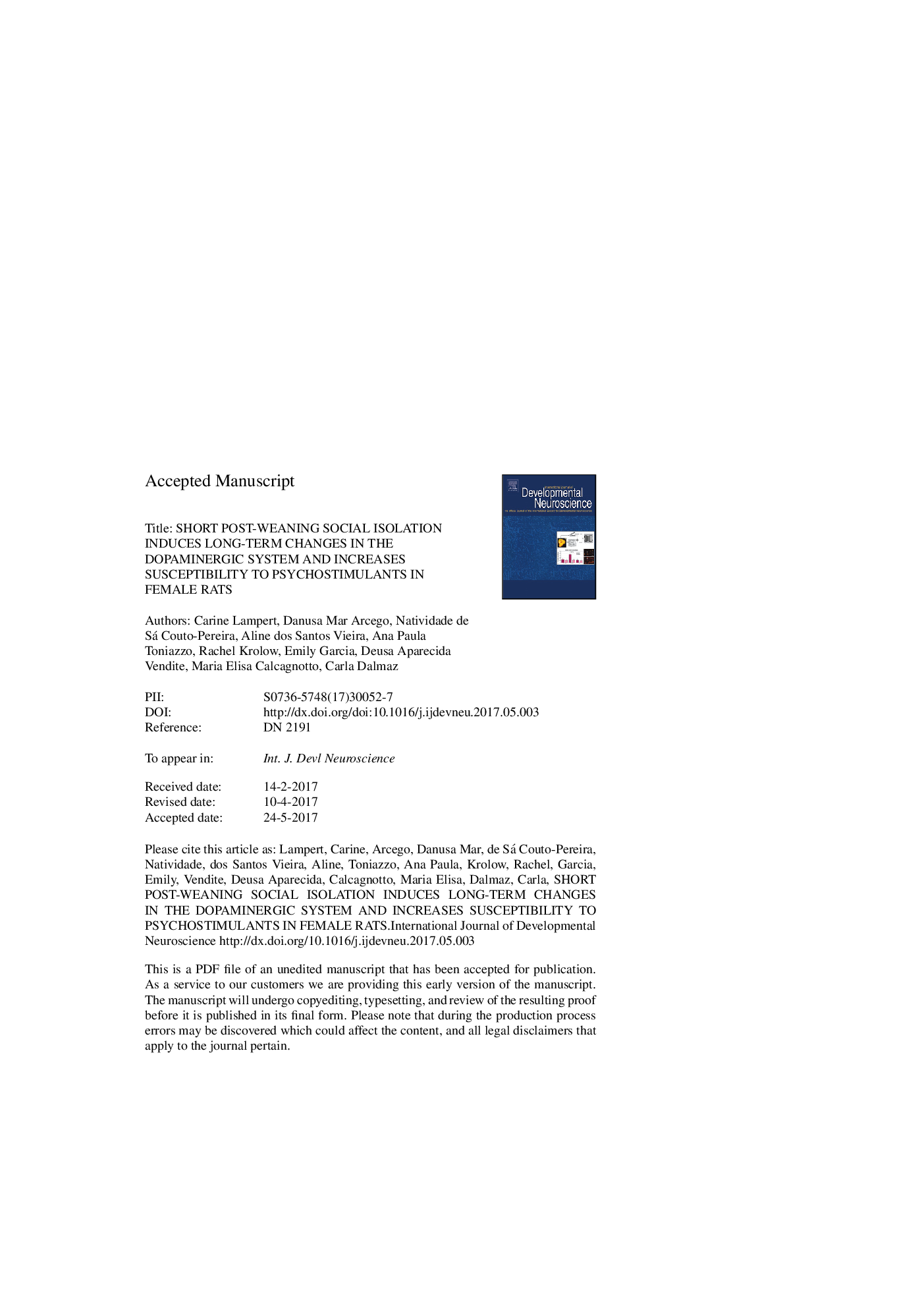| Article ID | Journal | Published Year | Pages | File Type |
|---|---|---|---|---|
| 5585739 | International Journal of Developmental Neuroscience | 2017 | 35 Pages |
Abstract
Childhood and adolescence are sensitive periods of development, marked by high brain maturation and plasticity. Exposure to early life stress, such as social isolation, is able to prompt changes in sensitive brain circuitries, essentially in the mesolimbic dopaminergic system and increase the risk for addictive behaviors later in life. Post-weaning social isolation can stimulate the consumption of rewarding substances, like drugs of abuse and palatable foods. However, most studies analyze long periods of social isolation and very little is known about the effects of a brief social isolation in a sensitive period of development and its association with palatable food on the reward system sensitization. Furthermore, females are more susceptible to the reinforcing effect of drugs than males. Therefore, the aim of this study was to analyze the effects of a short post-weaning social isolation combined with a free access to a chronic high sugar diet (HSD) on the dopaminergic system, oxidative status and behavioral response to an amphetamine-like drug in adulthood. We used female Wistar rats that were socially isolated from post-natal days (PD) 21 to 35 and received free access to a HSD until PD 60. On PD 65, animals were submitted to a challenge with diethylpropion (DEP), an amphetamine-like drug and different responses were analyzed: locomotor activity, immmunocontent of dopamine related proteins, and the oxidative status in the striatum, before and after the DEP challenge. We showed that a short post-weaning social isolation (SI) increased the locomotor response to DEP, when compared with previous saline administration. Social isolation also increased dopamine transporter, tyrosine hydroxylase, and decreased dopamine D2 receptor immunocontent. Additionally, SI increased the overall oxidative status parameters after the challenge with DEP. Interestingly, the exposure to a HSD prevented the SI effects on locomotor response, but did not interfere in the dopaminergic parameters evaluated, despite having modified some oxidative parameters. This study showed for the first time that a short post-weaning social isolation was able to induce long-term changes in the striatal dopaminergic system and increased the response to psychostimulants. These results emphasize the importance of stressful experiences during a short period of development on programming susceptibility to psychostimulants later in life.
Related Topics
Life Sciences
Biochemistry, Genetics and Molecular Biology
Developmental Biology
Authors
Carine Lampert, Danusa Mar Arcego, Natividade de Sá Couto-Pereira, Aline dos Santos Vieira, Ana Paula Toniazzo, Rachel Krolow, Emily Garcia, Deusa Aparecida Vendite, Maria Elisa Calcagnotto, Carla Dalmaz,
